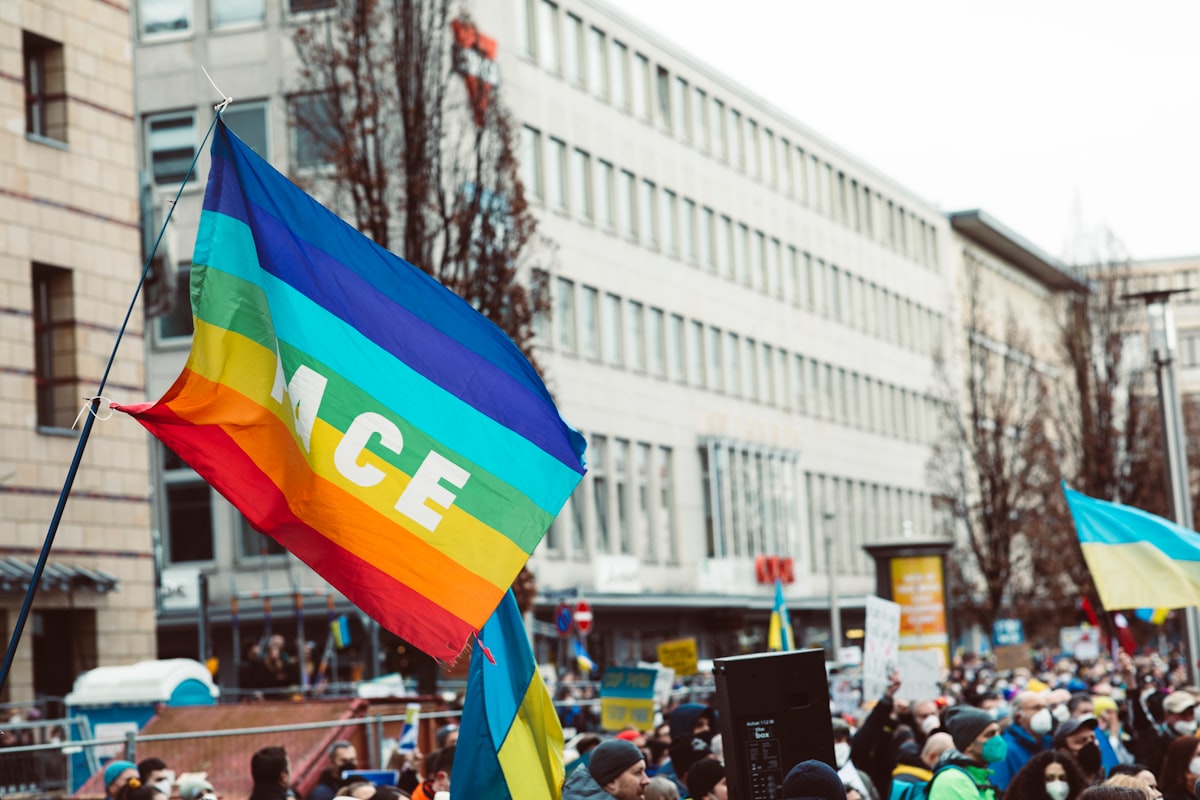How will the Russia-Ukraine War Impact Global Business?
224th February 2022 - the day which left the entire world in a tumultuous state. On this very day, Russia invaded Ukraine - the event that nearly shocked global business and raised fears of a world war. Still, the war is ongoing, raging, and growing daily.

Overview
224th February 2022 - the day which left the entire world in a tumultuous state. On this very day, Russia invaded Ukraine - the event that nearly shocked global business and raised fears of a world war. Still, the war is ongoing, raging, and growing daily.
However, the war has, till now, caused financial and global restraints even on large economies, especially the EU.
Let's dig deeper to find out about the repercussions of the invasion in the international business context.
US Retaliations
The invasion and the deadly skirmishes by the Russian Army have been condemned globally. While the entire world expected 2022 to be a year of recovery from the deadly COVID, business executives and government leaders were surprised by the invasion.
Even the World Trade Organisation has reduced this year's growth rate from 4.1% to 2.8%. Since the world economy is in crisis, the Western powers, especially the US, have hit Russia with strict sanctions in an attempt to force the Russian Government to back off from the war.
Here is a brief overview of the sanctions imposed by the US to disrupt the ongoing war:
- Freezing central bank assets
- Preventing Russia to use emergency wealth funds
- Restricting Russian banks to use SWIFT - a global payment system.
- Blockage to Russia-Germany Gas pipeline
Effect on Russia
The sanctions imposed by the Western powers have even affected the exchange rates. FOr example, the Russian ruble is experiencing depreciation at an accelerating rate. Furthermore, it has rendered the Government helpless since they cannot use the $643 billion in foreign reserves and convert it into rubles.
The effects have been catastrophic on the Russian Government, and it has nearly handicapped their financial system. The companies operating or trading with Russia face trouble finding the appropriate financial channels for payments, raising trade disputes.
Furthermore, the foreign trade flows transactions between Russia and its trading partners have to pass through a Western-dominated financial system. Since the sanctions have hijacked the financial technology in Russia, the companies are facing trouble continuing their business operations.
Even the uproar by some of the top global brands has weakened the economic activity in Russia. For example, Unilever has stopped advertising, trade shows and its marketing campaign in Russia. Moreover, McDonald backed out and has closed its 847 restaurants across Russia - a stunt to force the Government to back off from the war.
Even big media companies have stopped their advertising operations in Russia, and promotional products distributors stand with the people of Ukraine.
However, despite all of these retaliations, let's not forget that Russia is a superpower with a massive nuclear weapons arsenal. Let's analyse how Russia reacted and what this war means for global business.
Consequences for the Global Business
Ukraine and Russia are the top commodity exporters in the world. The ongoing war has put a hold on all the exports and has increased the international market prices of the various commodities. Well, this is having quite a rebellious effect on the global business.
Let's dissect and view each issue more closely.
Commodities Effect
Both the states produce several commodities. What's worse? Many developing states and even superpowers depend on Russia for the goods.
Agricultural commodities
Ukraine and Russia account for more than 1/4th of the total global wheat trade. However, the ongoing war and skirmishes have disrupted wheat's growth and farming cycle in Ukraine.
According to the UN Food and Agriculture Organisation, almost 20% of planted wheat in Ukraine won't be harvested due to the destruction of farmlands and inadequate resources to harvest the wheat. Even the UN agency cuts the forecast of global cereal trade by almost 14.6 million tons - that's quite a lot.
Hence, there will be a lack of wheat supply globally, and the trade barriers would make it more difficult for the locomotion of the commodity. Furthermore, the lack of supply will translate into a steep price rise for food and fuel, making it difficult for other countries to import wheat at a cheap cost.
Not only wheat, but the Russian invasion will also directly impact the production of related agriculture products such as maize, sunflower seeds, and barley. Here are nations that will be affected the most by the sheer rise in the food prices and the ongoing trade war:
- Egypt and Turkey - Almost 70% of total wheat import is dependent upon Russia. On the other hand, Turkey is already in economic turmoil, with its inflation hitting the peak of 50%.
- The Middle East and Africa - The high food price will primarily affect sub-Saharan African countries and Western hemisphere nations. These countries are always in an economic crunch and depend largely on imports.
- Lebanon - It's a state with a troubled economic history. The state already depends upon Russia for 50% of wheat imports. The rise in food prices is expected to hit the economy.
Oil and Natural Gas
Both commodities are the backbone of any economy. As long as the war rages, the threats of sanctions on hydrocarbon exports of Russia may cause upward pressure on the price of an oil barrel, which is likely to linger at $100 or more.
Gas prices are expected to rise by over 50% this year. Since the EU is highly dependent on Russia for energy imports, it is the most affected country by the rise in gas prices. Europe currently has fewer stockpiles, raising concerns over gas supplies during the winter season.
Furthermore, Eastern Europe has seen an increase in refugees, and they have provided accommodation to almost 3 million Ukrainian citizens.
Metal
Russia is also a major producer of essential base metals, including titanium, palladium, aluminium, and nickel. These metals are involved in various manufacturing industries, having multiple applications. These metals will also witness a price hike during this ongoing warfare.
Supply Chain Effect
Let's talk about one of the most important repercussions of the war responsible for dampening the trade routes for nations. All the trade routes have been disrupted due to the ongoing war. Since it's the primary transportation channel, nearly every business producer operating in Russia has been affected.
Land-Based Trade Route
The land-based transit has been made difficult due to various compliances and safety measures. China has experienced some of these effects because they prefer using the land-based Silk route.
Even promotional product producers might face difficulty transporting these products since the routes have been blocked.
Air Route
EU nations have closed their airspace for Russian aircraft and cargo, worsening the supply chain issues. Moreover, several flights have been delayed and rerouted, causing problems and a halt in the production processes of several businesses.
Sea Route
Ukraine has temporarily closed down Black Sea ports, and Turkey has restricted trade through Phosphorus. This has caused insurance and shipping costs to soar unreasonably, making it difficult for companies to import.
It has an undesirable impact on automotive companies such as Volkswagen, which depend on base metals imported to produce their cars. Furthermore, chip manufacturing companies are experiencing a dent in their production processes due to fewer barley imports.
Global Inflation
It's expected that inflation will rise by 6% this year around the world. All of this is attributable to the unprecedented hike in commodities prices. However, it's also the reason for slower growth in several states.
Ukraine and Russia, no doubt, will face a deep economic recession this year. But their trading partners, especially Lithuania and Latvia, will also take a deep hit. Elsewhere, the impact would not be significant, but countries, especially the EU, will experience price and energy shocks.
Impact on the Brands and Promotional Sector

As mentioned above, many brands have come out in solidarity to stand with the Ukrainian citizens. Most of them have boycotted their operations within Russia to pressure the Government to back off.
Since many brands have closed their branches in Russia, there must be a hit on their revenue streams and profits. Here is the response by some companies to the invasion:
- Abbott laboratories have stopped their business investment, development, and advertising activities in Russia.
- Eli Lilly and Co have suspended their marketing and investment activities.
- KFC, Pizza Hut, Starbucks, Heineken, Mother care, Universal Music group, and Imperial brands have cut ties with the Russian Government.
- Media companies, including Discovery, Bloomberg, Meta, and CNN, have suspended their operations in Russia.
- The ten largest advertisers in Russia have halted their advertising. The companies include Nestle, Pepsico, Loreal, Mars, and P&G. Eight of them have even threatened to suspend operations.
Hence, it's evident that the brands are enraged over the Russian invasion. Since most of these firms are suspending operations, promotional products distributors may also face a halt in their business, especially in Russia. But how?
Most of these big businesses are halting operations and advertising campaigns in Russia. Hence, there won't be less production of promotional products such as promotional bags, cups, shirts, and badges. Therefore, the distributors in Russia especially may experience a halt in their operations due to the invasion.
However, distributors operating outside Russia may face no little to no impact. The businesses outside Russia are still thriving and growing. Hence, such businesses didn't reduce their advertising spending, so the demand for promotional products will still be there.
Conclusion
The war still rages, and it seems that there will be a further escalation. Till now, the effects mentioned above continue to dampen the global business. Furthermore, the western powers are striving to place sanctions on Russia to make them undo their actions and, in turn, restore the global economy. But still, Russia is launching full-fledged skirmishes in the localities of Ukraine.
Let's see how things unfold in the near future. Until then, stay updated.
